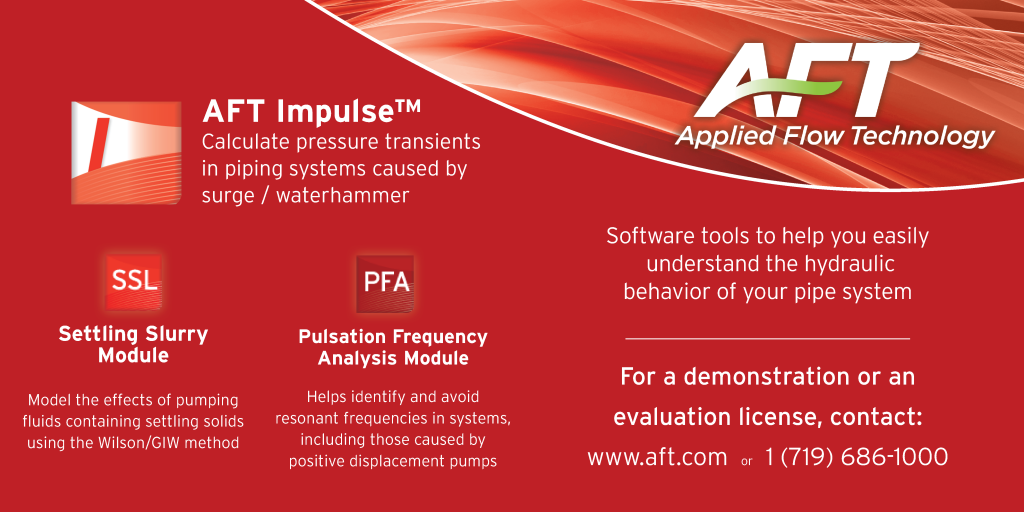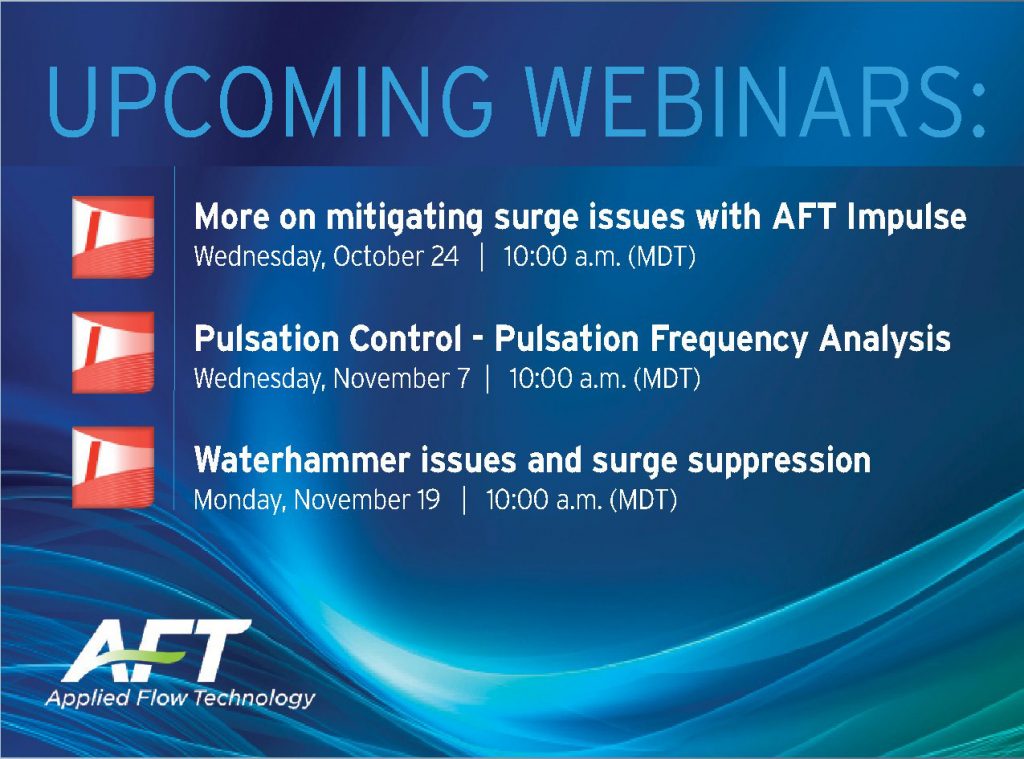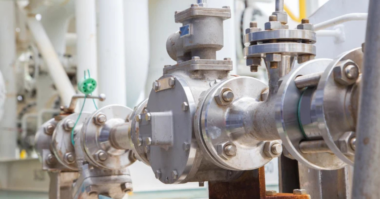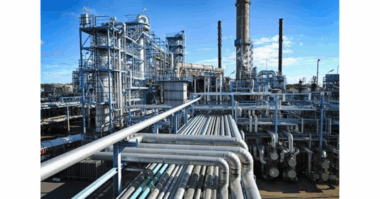Reinaldo Pinto, Applied Flow Technology’s (AFT) Global Sales Manager, has a unique perspective that many would appreciate. He works hand-in-hand with partners in over forty countries and keeps an eye on a multitude of industry sectors. On any given day you can find him educating engineers around the world to empower them to design and troubleshoot piping systems using AFT’s modeling, simulation and analysis software.
According to Pinto, AFT’s current focus is on markets like China, Middle East and India who have ‘high potential growth’. Peru and Chile are also on their radar due to the recovery in the mining sector. Like a lot of the industry, AFT spent 2017 recovering from the oil prices in 2016. 2018 has been successful. Mining has increased, heating and cooling districts are looking for innovation, and the energy sectors are having a good year.
The big question everyone wants to know is what is on the horizon for AFT? In 2018, AFT has released new versions for two of their main products: AFT Fathom 10 and AFT Arrow 7 which provide flow analysis and simulation, one incompressible and one compressible. AFT Impulse 7, used for waterhammer and surge transient analysis, is coming out around January 2019.
Also on the horizon is a new system sizing add-on module called AFT Automated Network Sizing (ANS) Module. ANS will replace AFT Titan and AFT Mercury. It will allow engineers to utilize the same powerful tools but at an affordable price point and in a user-friendly module they can use with AFT Fathom or AFT Arrow.
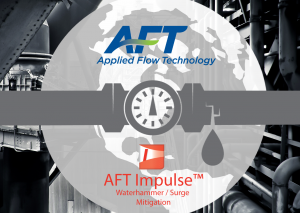 One of the main tools engineers utilize from Applied Flow Technology is AFT Impulse. Waterhammer and surge aren’t issues most engineers work with on a daily basis, but when they do need the tools to, they need them immediately and they need them to work without hesitation to ensure safety.
One of the main tools engineers utilize from Applied Flow Technology is AFT Impulse. Waterhammer and surge aren’t issues most engineers work with on a daily basis, but when they do need the tools to, they need them immediately and they need them to work without hesitation to ensure safety.
AFT has worked hard this past year to build education resources around waterhammer /surge and they even broke through their own glass ceiling with the creation of the Pulsation Frequency Analysis (PFA) add-on module to help everyday engineers simulate and analyze pulsation in piping systems.
Can you give a description of how AFT Impulse works?
AFT Impulse is a modelling and analysis tool used to calculate pressure surge transients in liquid piping systems caused by a sudden change in the operating condition in the system, also referred to as surge or waterhammer.
AFT Impulse incorporates a steady-state solver providing seamless transfer of initial conditions to the transient analysis. Steady-state solutions are determined using a modified Newton-Raphson matrix iteration.
First it models the steady state of the system, then it allows the user to simulate one or more changes to the operating conditions such as valve closure, relieve valve opening, pump trip, etc. AFT Impulse calculates the surge pressures that result from the changed operating conditions. The transient forces that arise from these pressures can be determined and can optionally be exported to a pipe stress program. All of these calculations assist engineers in assuring compliance with B31.3 or B31.4 codes.
Ultimately this product is geared towards a niche group of engineers who deal with these issues. It’s not a catch-all tool for everyone, but for those who need it AFT Impulse could mean the difference between efficient operation or production-halting catastrophes.
AFT Impulse brings confidence to the table. It has been matched against several other pieces of software and methods. Time and time again it provides reliable analysis data and helps engineers troubleshoot events and proactively build safe piping systems.
What are the advantages & limitations?
The main advantage of AFT Impulse is that not only is it designed to model a complex phenomenon, it uses a very friendly user interface. This interface allows users to comprehensively model, detect and solve any potential problem due to a transient condition within any hydraulic network.
The limitations of AFT Impulse originate from the complex nature of the phenomenon it intends to model. Transient analysis has many unexplored areas we must navigate. We constantly investigate, research and develop new features – as well as the use of new methodologies – to address these problems, but there are always new areas to explore.
What is AFT focusing on at the moment?
Primarily, AFT is focused on building partnerships and integration with other engineering software to address pipe stress, plant design, GIS, etc. While our products are regarded internationally as a leader in our field, we can always improve. At this time, we have improved the interface with CAESAR II Neutral files and are allowing imports of Piping Component Files from SmartPlant, CADWorx and AutoCAD Plant 3D, among others.
Finally, in the water industry a common file format is EPANET, which AFT can now import and export.
“Water” you waiting for? Checkout these water system features!
System reliability and plant safety is always a driving factor for how we design our software. We have taken our technology a step further and included codes and industry standards references in our software output. For example, API-610 – which directly addresses the problems related to pumps operating too far from the Best Efficiency Point (BEP) by establishing recommended limits – is reported by AFT Fathom. AFT Impulse’s PFA output reflects standards such as the API-674 so engineers can determine if they are in compliance with pressure pulsation magnitudes.
Additionally, AFT is working hard to help engineers model and analyze various hydraulic phenomena including acoustical resonance, steam hammer and pipe network optimization.
Finally, we are focusing on students and education. It’s not something we make money on, but we feel we have an obligation to students and universities. Currently, we have given full software licenses to multiple student researchers around the world. They have worked on projects ranging from hot water pest eradicators in California, USA to the design of a pipeline from a liquified argon tank in Australia. We created a student version of AFT Fathom that developing engineers can use for homework and AFT provides teaching packages to instructors. It’s an area of our company we are extremely proud of and really enjoy seeing the results of students’ hard work and innovation.
Related content: AFT Donates Software to Bright Engineering Minds at the University of Delaware
What trends are you seeing in the industry?
Right now, there are a lot of company acquisitions taking place in our industry.
Second, we see some major growth in the refinery sector. Refineries are working more efficiently and are expanding their capabilities.
Third, energy efficiency has been a large topic for several years and is only growing. Pumps use a lot of energy and engineers are continuously working with model and simulation scenarios to decrease energy use while maintaining, and even increasing, flow through piping and ducting systems. Governments and industries alike are making energy efficiency a priority and it is extremely interesting to be able to work with these engineers who are making efficiency possible beyond their projects’ expectations.
Try a *FREE* Demo!
See more from Applied Flow Technology!
https://empoweringpumps.com/aft-impulse-matches-data-for-pumping-station-check-valve-closure-2/


